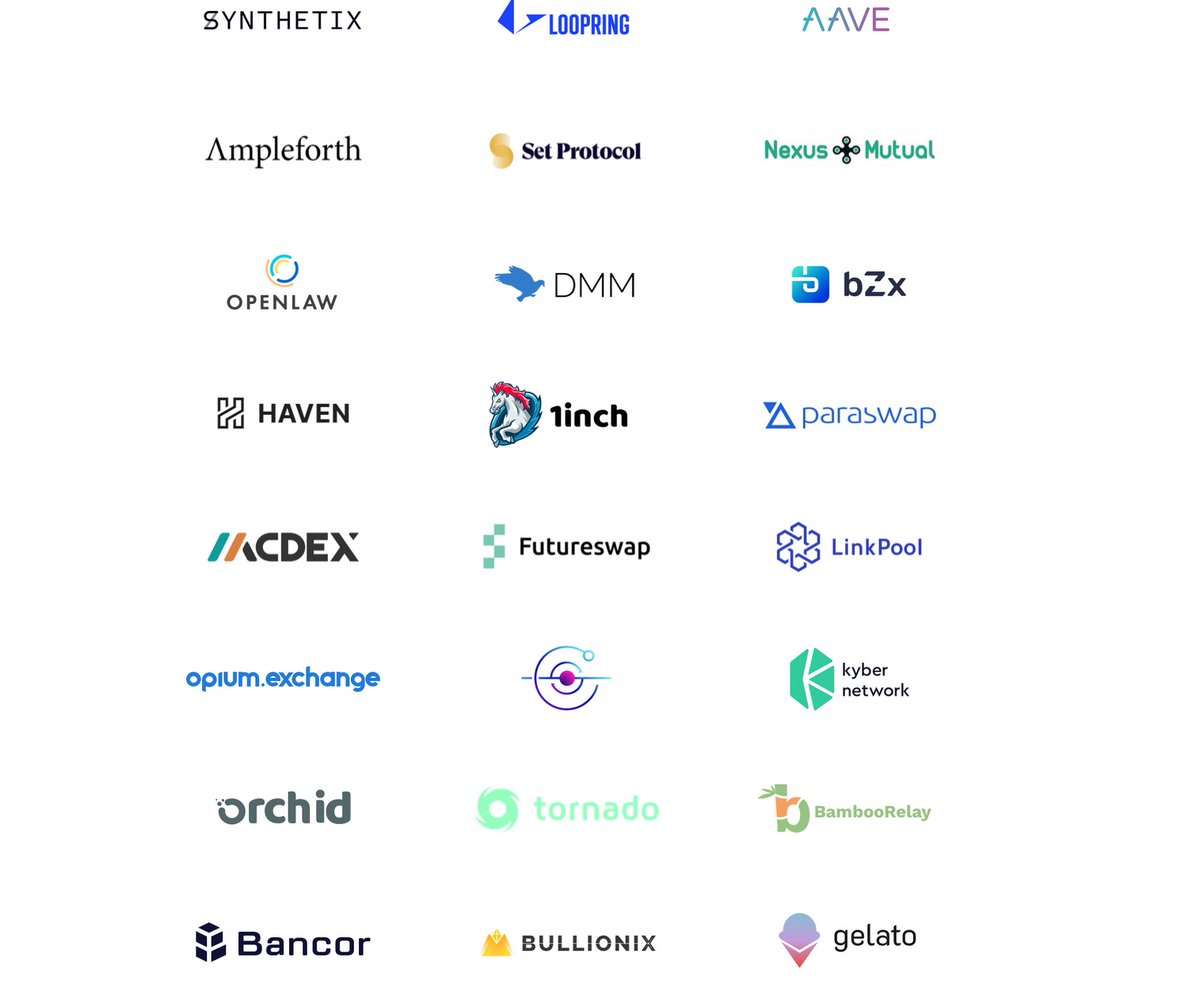Last week our team started providing an IT service to a public blockchain network. No client, no contract, no invoice. This is sometimes referred to as "generalized mining" or blockchain infrastructure provisioning. (THREAD)
https://www.t-systems-mms.com/en/expertise/archive/smart-contracts-made-reliable-and-useful-with-the-real-world-data.html
https://www.t-systems-mms.com/en/expertise/archive/smart-contracts-made-reliable-and-useful-with-the-real-world-data.html
(2/11) I believe we are the first major corporate in the world to engage in that type of blockchain infrastructure provisioning while also monetizing it via the respective native digital asset of the network. All in a regulated and fully compliant way ( ) https://cointelegraph.com/news/deutsche-telekoms-t-systems-is-now-a-chainlink-node-operator
) https://cointelegraph.com/news/deutsche-telekoms-t-systems-is-now-a-chainlink-node-operator
 ) https://cointelegraph.com/news/deutsche-telekoms-t-systems-is-now-a-chainlink-node-operator
) https://cointelegraph.com/news/deutsche-telekoms-t-systems-is-now-a-chainlink-node-operator
(3/11) Public blockchains aim provide a certain utility to the end-users (demand side). We, as a major telco, see our job in bootstrapping/providing some of the public networks' infrastructure (supply-side services) as we have historically been doing with telephony and Web2 infra
(4/11) Such Web3 public network infrastructure now takes the form of nodes, validators, block producers, orchestrators, transcoders, keepers, witnesses, curators, etc. and the opportunity space for these is growing rapidly.
(5/11) By deciding to run a node/validator/etc. with exposure to a native digital asset as a corporate, we are essentially participating in the network lifecycle investing (a term coined by @jbrukh), more specifically at its mid-late stages.
(6/11) Corporates and large software integration houses become more relevant towards the end of lifecycle in which they (aside from bootstrapping the network) can develop/integrate use-cases on top of these networks and help to bring those to their existing customer base.
(7/11) As an enterprise, we realize our limited right-to-play in areas like DeFi on application level. This is why we feel larger players have to provide some of the infrastructure, utilizing their experience in doing so outside crypto while also keeping the “D” in DeFi and Dapp.
(8/11) Currently we are providing pricing data into @Chainlink oracle smart contracts powering (d)applications like #DeFi. By doing this, we help secure some of the value locked on the ETH application level (currently ~$3.6B) and will monetize a share of DeFi usage in the future.
(9/11) Most of Web3 financial services (e.g. staking) are IT services by nature and are not core biz of traditional financial institutions. E.g. transcoding videos is not what banks do, but this is nevertheless exactly what protects $LPT token holders from dilution (simplified)
(10/11) As blockchain IT and financial services converge, tech companies are thus even more suited to capture a share of traditional finance with various infrastructure services as the adoption of respective decentralized networks grows.
(11/11) This is the first form of such public network infrastructure we are going to provide, more to be announced soon.
P.S. great thanks to the whole team, their open-mindedness and support in getting this live!
P.S. great thanks to the whole team, their open-mindedness and support in getting this live!

 Read on Twitter
Read on Twitter


